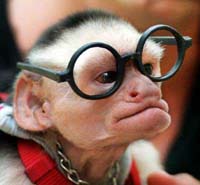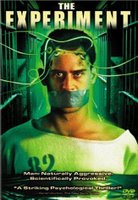NYer on wikipedia, citizen journalism
 Online, everyone's an expert and no one is.
Online, everyone's an expert and no one is.Anyone can post on Wikipedia, the online encyclopedia, and they have plans to make it even easier soon. But the site shuns "original research" and opinion, and encourages people to get their facts from reliable sources and cite these sources. So it seems like experts still have a role, even if they're not actually posting the information on Wikipedia themselves. But ironically, Wikipedia may bite the minds that feed it, since it could drive some authoritative sources out of business—without a way of creating its own reliable information. Read more about Wikipedia, its problems, and its obsessive writers and revisers in this fun New Yorker story, "Know It All: Can Wikipedia conquer expertise?"
And boosters of citizen journalism—that is, journalism by amateurs, which has become another poster child of the internet information revolution—slag on experts and "the media," saying they're biased and provide spotty coverage. But citizen journalism, so far at least, consists mostly of blowhard commentary on the news or highly subjective or partial takes on events, argues a New Yorker article, "Amateur Hour: Journalism without journalists."
These two movements seem like opposite extremes: Wikipedia gathers information with incredible breadth and depth, but produces nothing original. Citizen journalism, ideally, creates totally original content but, at least for now, has little depth. I'm not ready to ignore experts or shun professional journalists yet—I know, shock horror!—but that's not too surprising since I'm a professional journalist who relies daily on experts, mostly scientists.













0 Comments:
Post a Comment
<< Home